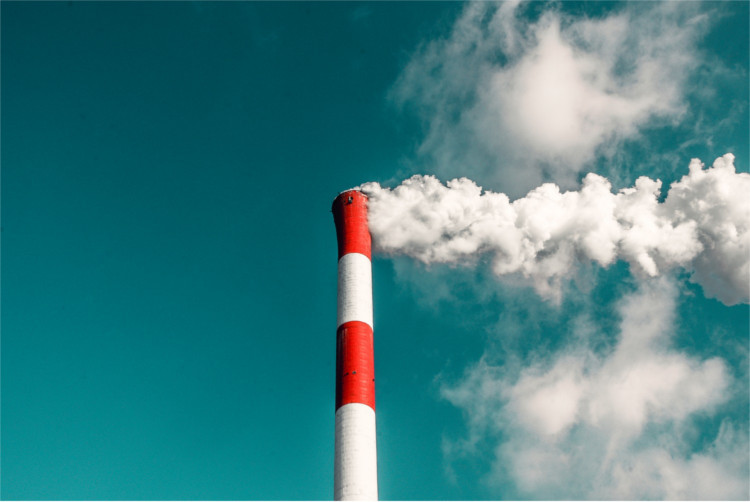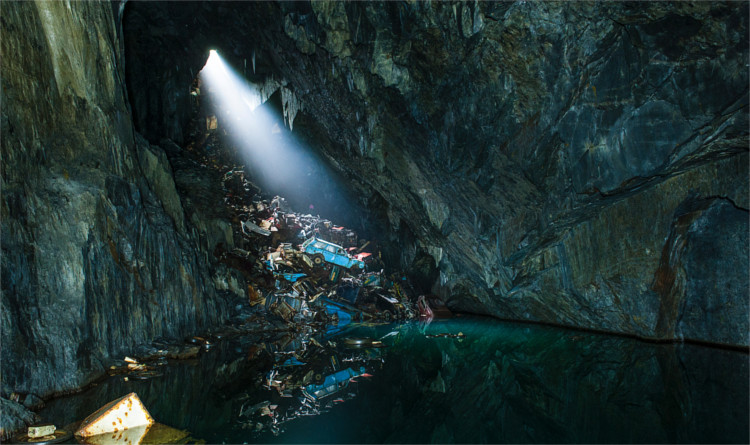Market Fundamentalism Versus The Natural World
The impact sustained by the earth as a result of the unfettered reign of markets and continual pursuit of economic growth is profoundly worrying. A war is being waged against the natural world by the ideological fundamentalism which underpins the global free-market system. Unrestricted growth, an insatiable drive for profits, a culture of denial, and a reliance on finite resources have led humanity down a disastrous trajectory.
The current stringent adherence to this ideological straightjacket has been devastating for the Earth’s environment. Economic development consists of the continuous year-to-year increase in the production, distribution, sale and consumption of food, artefacts and services. This is taken to be the only means of increasing wealth, and thereby, human welfare. This type of liberated development and over-consumption is now threatening the continued existence of species on the planet. The natural world is continually reduced to something which is to be exploited for short-term monetary gain. This train of economic thought is exceedingly destructive in its nature. As Edward Goldsmith notes “Nature is but a source of raw-materials for the economic process and a sink for disposing of its evermore voluminous and toxic wastes.” [1]

Earth’s atmosphere is now entering a new era. A mountaintop research station that has been tracking carbon dioxide for more than fifty years says the level of that gas in our air has reached a milestone: four hundred parts per million [2]. This is a significant increase from previous years and indicates to how the earth is being altered through human activity, activity stemming from the reckless expansion of industry and consumption powered by fossil fuels, which in turn drives global warming. Fossil fuels are finite reserves laid down over geological timescales; continuing consumption at current rates will exhaust the economically recoverable indigenous reserves in the next century.
Furthermore, it is argued that degradation of the resource base will eventually put economic activity itself at risk. To save the environment and even economic activity from itself, economic growth must cease and the world must make a transition to a steady-state economy [3]. This threat to economic activity which is caused by the unintended consequences of the current avid pursuit of growth underlines a fundamental contradiction of capitalism. These issues have been markedly absent from recent debates surrounding economic reform which continue their focus on the economic growth as the primary factor of human success and advancement.
The evidence of the enormously damaging outcomes of the pervasive spread of the market into all exploitable avenues is clear-cut. In the Amazon around 17% of the forest has been lost in the last fifty years, mostly due to forest conversion for cattle ranching. Deforestation in this region is particularly rampant near more populated areas, roads and rivers, but even remote areas have been encroached upon when valuable mahogany, gold and oil are discovered. Deforestation is now being carried out at an extraordinary rate in order to meet the demands of voracious consumption and growth.

Deforestation is not only harmful in terms of the destruction of a vital part of nature which absorbs carbon from the atmosphere; a function which is critically important in this age of human assisted climate change, but also due to the destruction and eradication of wildlife. In parts of the eastern and southern Amazon, thirty years of concerted deforestation have shrunk viable living and breeding territories enough to condemn thirty eight species to regional extinction in coming years, including ten mammal, twenty bird, and eight amphibian species [4]. Animals that have existed over millions of years will now disappear in a matter of years in the interests of generating quarterly profits and the accumulation of private fortune. This annihilation of the community of life is the product of the fundamentalist worldview which exponents that the earth has no value beyond its utility. In other words: it is utterly rotten to its very core.
This annihilation is evident with the recent surge in demand for palm oil, a substance of which the production of is devastating for ecological harmony. The increasing global demand for products derived from palm oil has been an unmitigated disaster in terms of rapidly increasing the scale of deforestation and destruction of species. When tropical forests are cleared to make way for oil palm plantations, carbon is released into the atmosphere as carbon dioxide, the gas that is the leading cause of global warming; tropical deforestation accounts for about ten per cent of total global warming emissions [5].
Conversion to palm oil estates completely eradicates forests, and annihilates orangutan populations within them, and those of countless other species [6]. As it stands, with the drive for growth at the centre of the economy the profits of the multinational companies carrying out this devastating deforestation of such a vast scale will continue to take precedence over the incalculable damage sustained by the biosphere. This highlights another inherent contradiction of capitalism; the failure to take the long-term unintended consequences of human activity into account, while the scientific and material means to overcome them, develops in tandem. Writes Friedreich Engels: “In relation to nature, as to society, the present mode of production is predominantly concerned only about the immediate, the most tangible result.” [7] This hugely restrictive economic model that is largely only concerned with instantaneous profit has led humanity into a much limited mode of awareness in which they are removed from nature and from being able to collectively and democratically decide the future course of society. This is a consequence of being treated like economic units rather than as political actors.

Much of the problems surrounding environmental damage and resource depletion lie within the rampant over-consumption of resources by Western populations; the deregulated market must meet this infinite demand, which is actively encouraged through a constant bombardment of marketing and advertising media. The economic system incites those who dwell within in to become self-serving, greedy, competitive, accumulative, and individualistic. Thus, spawning a society made up of disconnected consumers who are taught that success and happiness equates to the amount of material goods which can be accrued.
The attachment between people and the natural world is now being replaced by an attachment between people and things. Hyper-consumerism destroys relationships, communities, and the physical fabric of the Earth, leaving a void which is filled with the accumulation of more non-essential goods, and which in turn boosts profits and propels economic growth. Not only is this adherence to hyper-consumerism harmful to the Earth, but it is built upon structures of disconnection and destruction, and leaves people deeply unsatisfied as their insatiable wants are never truly met. Larry Elliot writes “The notion that rising incomes makes people happier was challenged in the years leading up to the financial crisis. There were studies showing that above a relatively modest level an extra dollar, pound or euro of extra income did not bring any increase in well-being.” [8] This goes against much of what advocates of the current dominant economic model pontificate – that more is better. This serves as further evidence of the contradictory nature of the capitalist economic model. Consumption is what lies at the heart of the system, it drives the system forward but ultimately it is deeply unsustainable and harmful.
Environmental degradation is a prime example of the destructive nature of free markets, facilitated largely through fundamental adherence to neoliberal ideology which promotes excessive competition and consumption, forming the basis of perpetual economic growth. It also outlines a deep-seated flaw within standard economics – the exclusion of the ecological limits of our planet within economical frameworks. If as Milton Friedman said “there is one and only one social responsibility of business–to use its resources and engage in activities designed to increase its profits” then the issue of environmental destruction and its surrounding problems are not to be solved whilst looking at the world through the scope of this paradigm, but are to only be exacerbated [9].

The cost of pollution and other damage to the natural environment caused by the world’s biggest companies would wipe out more than one-third of their profits if they were held financially accountable [10]. Therefore the primary goal of monetary accumulation enabled through deregulation of market forces is in complete opposition to the necessary remedies of the current problem. The worsening situation demonstrates the critical need for state intervention of a huge scale and the absolute failure of the “invisible hand of the market” in finding optimum equilibrium, and its success in accelerating the race to the bottom.
With Donald Trump and his merry band of ardent environmental-regulation-destroyers now occupying the most powerful political office in the world, the future of humanity is pushed further still towards darkness. What weak regulations existed now being ripped apart so that the short-term insatiable pursuit of profits can lie unperturbed. Quite simply: who cares about the destruction of our species, of our world – there is money to be made! Noam Chomsky was not wrong when he named the Republican Party as “the most dangerous organisation in human history”. Their world-view is so extreme it will literally destroy us all if left unbroken. Awareness of the colossal urgency that is staring our species in the face is undoubtedly growing. The situation is intolerable and should serve as the final nail in the coffin of the capitalist mode of production. Its never-ending pursuit of short-term profit margins marks the long-term annihilation of humanity. To remain under such a system is to dig our own graves. We must act now – we have a world to win.
References:
[1] Goldsmith, Edward. Economic development and environmental destruction. 1 January 1992. http://www.edwardgoldsmith.org/
[2] Harris, Richard. ‘Dangerous Territory’: Carbon Dioxide Levels Reach Milestone. 10 May 2010. www.npr.org. 12 May 2015.
[3] Panayotou, Theodore. “Economic Growth and Development.” Economic Survey of Europe. New York and Geneva: United Nations Publication, 2003. 45 – 72.
[4] Sample, I. Amazon’s Doomed Species Set to Pay Deforestation’s ‘Extinction Debt’. The Guardian. 2012, July 12.
[5] Union of Concerned Scientists (UCS). Palm Oil and Global Warming. Cambridge, MA Online at http://www.ucsusa.org/sites/default/files/legacy/assets/documents/global_warming/palm-oil-and-global-warming.pdf, 2013
[6] Singleton, I. The Oil for Ape Scandal. How Palm Oil is Threatening Orang-utan Survival. Friends of the Earth Trust. Research Report, 2005
[7] Engels, F. The Part Played by Labor in the Transition from Ape to Man. The Origin of the Family, Private Property and the State (260–61). New York: International Publishers, 2007
[8] Elliot, Larry. “The Economics of Happiness Can Make for Sad Reading.” The Guardian, 11 January 2015.
[9] Friedman, Milton. “The Social Responsibility of Business is to Increase Profits.” The New York Times Magazine (13 September 1970)
[10] Jowit, Juliette. “World’s top firms cause $2.2tn of environmental damage, report estimates.” The Guardian (18 February 2010)
Featured Image Source
